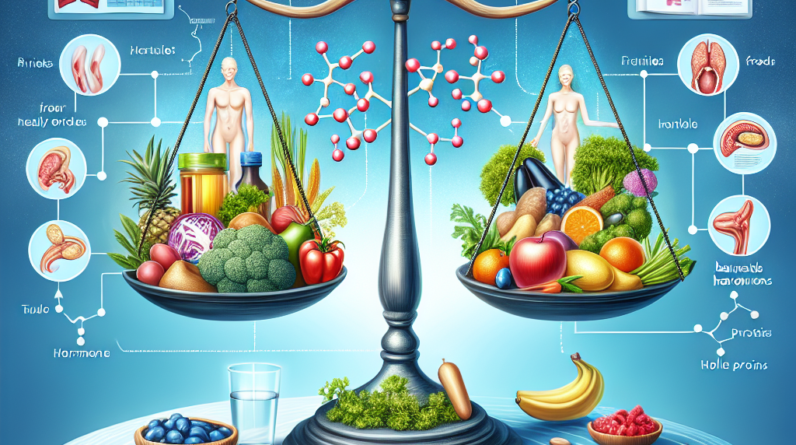
Understanding Low-Carb Diets
What Exactly Is a Low-Carb Diet?
From my experience, a low-carb diet typically limits the intake of carbohydrates, favoring proteins and fats instead. The idea is pretty simple: by cutting carbs, your body begins to burn fat for fuel, which sounds appealing, right? It’s like training your body to use a different gas station!
Get a Huge Discount and Bonus! Try for 90 Days Risk Free
There are several variations of low-carb diets. The most popular ones include the ketogenic diet, Atkins, and paleo styles. Each approach has its own set of rules about how many carbs you can have, along with recommendations for what foods to chow down on. It’s definitely worth exploring, but let’s dive deeper.
But here’s a catch: while going low-carb might seem like a quick fix, it’s important to make sure it doesn’t lead to nutrient deficiencies. Often, people ditch not just the carbs but also whole food groups—like fruits and grains—without realizing they’re missing out on essential vitamins and fiber.
Potential Benefits of Low-Carb Diets
Weight Loss Wonders
When I first tried a low-carb diet, I was amazed at how quickly the pounds started to shed. It’s common for folks to see rapid weight loss in the beginning, mostly due to water weight. As your body adjusts, fat loss becomes apparent too, which is super encouraging!
Some studies suggest that low-carb diets may be more effective for weight loss compared to low-fat diets. For me, the best part was that I felt full longer, thanks to the protein and fat intake. I wasn’t constantly battling cravings, and that’s a game changer!
However, the excitement of initial weight loss can lead to temptations to stay on a much longer-term low-carb path, which may not be sustainable for everyone. It’s essential to listen to your body and assess what feels right.
Potential Drawbacks of Low-Carb Diets
The Keto Flu and Other Side Effects
Let’s face it, jumping headfirst into a low-carb lifestyle can come with its own bag of tricks. For me, the first week was no bed of roses; I experienced what people call the “keto flu.” Fatigue, headaches, and mood swings were definitely part of my initiation!
This flu happens because your body is adjusting to burning fat instead of carbs, and it’s pretty common for first-timers. Staying hydrated and understanding that this is temporary really helped me push through.
But that’s not the only concern! Some folks might struggle with digestive issues—like constipation—if they’re not careful about incorporating enough fiber from non-starchy veggies. I had to keep reminding myself to get my greens in.
Get a Huge Discount and Bonus! Try for 90 Days Risk Free
Is It Sustainable Long-Term?
Finding What Works for You
One important thing I learned is that sustainable eating habits are crucial for long-term success. Personally, I found that while cutting carbs helped me initially, I missed the social aspect of enjoying meals that included a variety of foods.
Good Health Solution is Easier Than Most People Think!
Take a Look for Yourself!
When I tried to stick to a rigid low-carb plan, it became exhausting. I had to be extremely cautious about what I ate when eating out or at family gatherings. So I asked myself: is this really worth it in the long run?
Need a Serious Energy BOOST? Huge Discount Try for 90 Days Risk Free
Over time, I realized that adapting my diet to include moderate carbs allowed me to enjoy my life a bit more. It’s all about balance! I found that being flexible made me happier in my food choices and lifestyle overall.
Consulting with Professionals
The Role of Health Experts
Before diving into anything dramatic, it’s always a good idea to consult a healthcare professional. That’s something I wish I had done at the start of my low-carb journey! They can help you tailor your approach to fit your individual needs.
The health pros might also warn you about potential risks, especially if you have underlying health conditions. In my case, it’s vital to have that extra layer of guidance as there’s no one-size-fits-all solution when it comes to diets.
Beyond doctors, I also recommend discussing plans with nutritionists. They can give you valuable insights on how to keep your meals varied and nutritionally balanced, ensuring you don’t miss out on vital nutrients during your low-carb phase.
FAQs
1. What types of foods should I avoid on a low-carb diet?
Generally, you’ll want to steer clear of sugar, grains, and high-carb fruits and veggies. Think of white bread, pasta, and cakes as your main culprits!
2. Can I have cheat days on a low-carb diet?
Sure! But remember, cheat days can sometimes set you back. A lot depends on your body and your goals, so listen to what your body is telling you.
3. How do I know if a low-carb diet is right for me?
The best way is to evaluate how you feel after transitioning to lower carbs. If you see benefits without feeling deprived, then it might just be your jam!
4. Are there any long-term health concerns with low-carb diets?
Long-term, some might worry about heart health due to high fat intake. That’s why regular check-ups with your doctor are so important to monitor any changes!
5. What’s the best way to transition off a low-carb diet?
Gradually reintegrate healthy carbs like whole grains and fruits, and pay attention to how your body reacts. A slow and steady approach works wonders!








